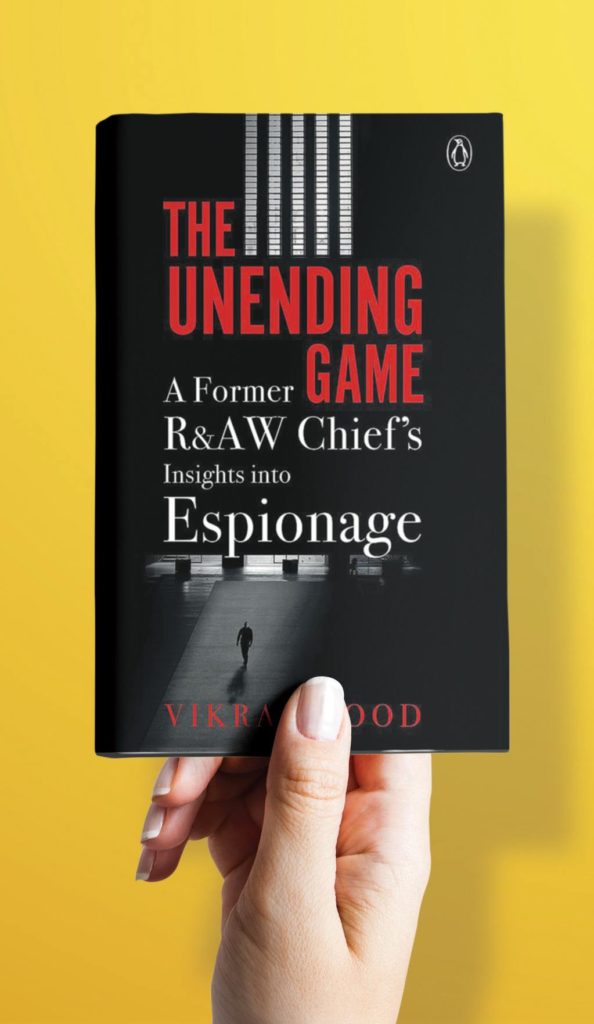A Glimpse Into The Real World

Vikram Sood’s The Unending Game is a non-fiction novel that will change your notions about the world around you. By Remya Nair
By Remya Nair
For someone who’s well-fed on James Bondesque spies and a-la-Munich stories of espionage and political games that ensue, a book by the former R&AW chief on how espionage has grown over the years didn’t seem like it had something new to offer. How brazen I was. And, how badly mistaken. The Unending Game: A Former R&AW Chief’s Insights Into Espionage is, simply put, a brilliant non-fiction novel. I didn’t expect to be so taken aback by the narration and I was definitely shocked by the names revealed. Vikram Sood doesn’t beat around the bush. In his book, he categorically breaks down what he quotes ‘the second oldest profession in the world’ – spying on your enemies. And in this game, everyone is your enemy at some point or the other.
He takes you through famous spy networks across some of the biggest countries, the workings of the CIA, KGB and subsequently, the ISI, R&AW and other such intelligence agencies, while at the same time chronicling events that led to the creation of the Taliban, Al Qaida and LeT, amongst others, now classified as terrorist organisations. His storytelling keeps you glued. This is a non-fiction novel in the sense that the stories aren’t made up. However, it is far better than some of the best fiction novels written or movies made. What is even more chilling is the fact that these are true. That the fate of millions is made or broken because of the intelligence shared by one person. A spy who chose to give up his/her individuality for the sake of the larger good.

You begin to realize that the war of the minds was fought long before the guns were drawn. It is the normalness of it all that surprises me. The whole journey from piecing together scattered bits of information to intelligence worth taking decisions over is fascinating. More so, the unwavering dedication it must take. Be prepared to have certain notions that you have about prominent figures/organizations/nations shattered or at the least, be irrevocably altered. You will find yourself gaping at the names being disclosed or the behind-the-scenes charade revealed.
Also, George Orwell’s Big Brother hasn’t seemed more real. This book is a one-stop destination for those who want to know about the espionage mechanism around the world, events that preceded some of the best and worst decisions made by statesmen, events that altered the course of history, and most importantly, the few hands that were pulling the strings then and now. The reference material at the end of the novel is a treasure trove to more such conspiracy stories
A lot has changed: the battlefield, the absence of boundaries, the influence of the internet, media, and ideologies. What remains constant are the core motives, dominance, and power. To those who have grown up reading Robert Ludlum, John le Carre, Ian Fleming, and the kind, this book is a window into the real world. The world that inspired them. The world that they came from.
















